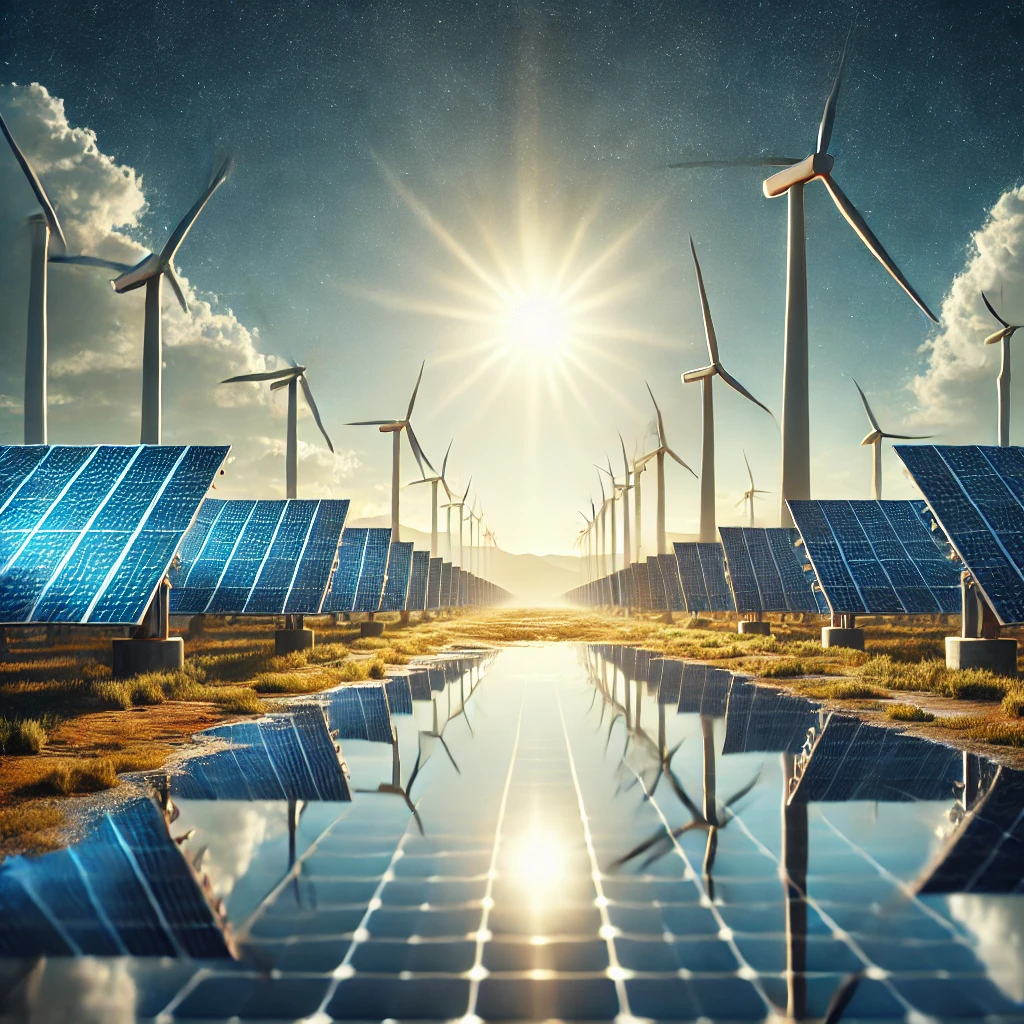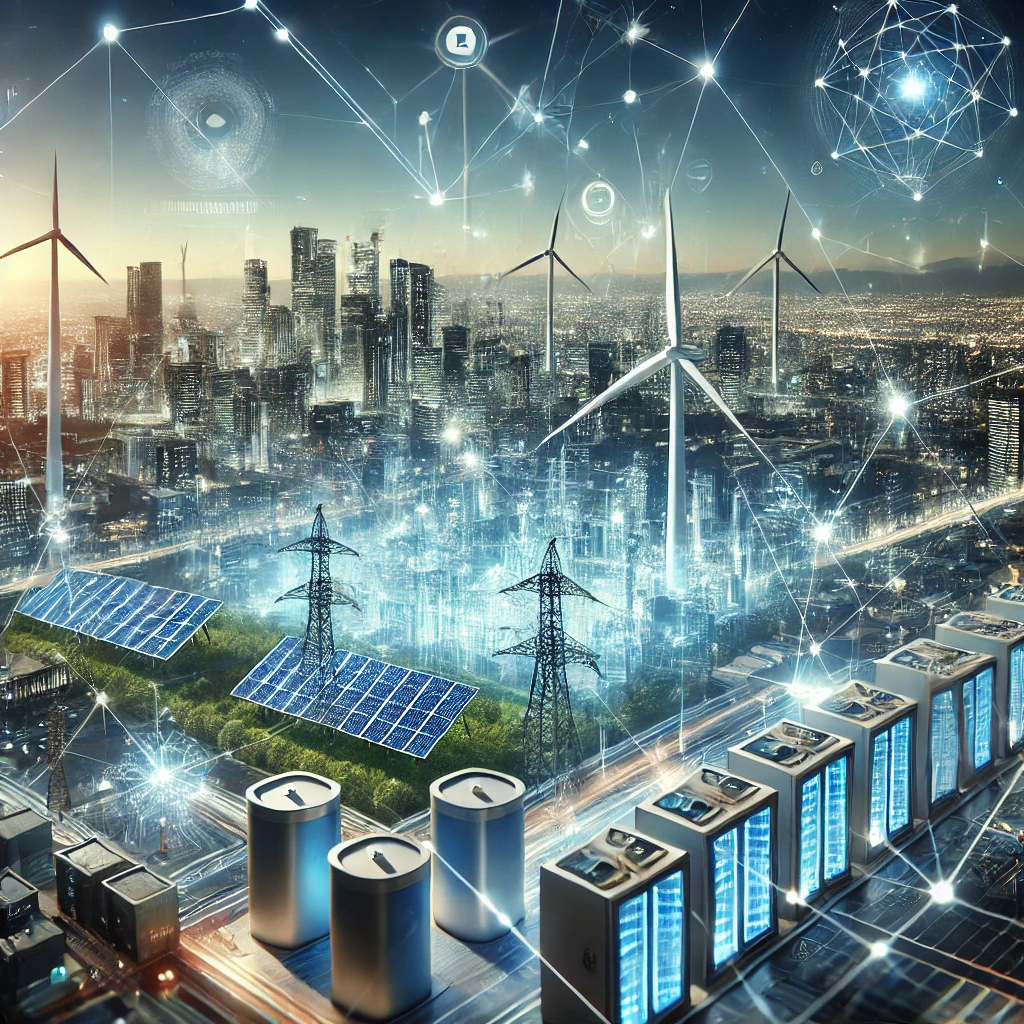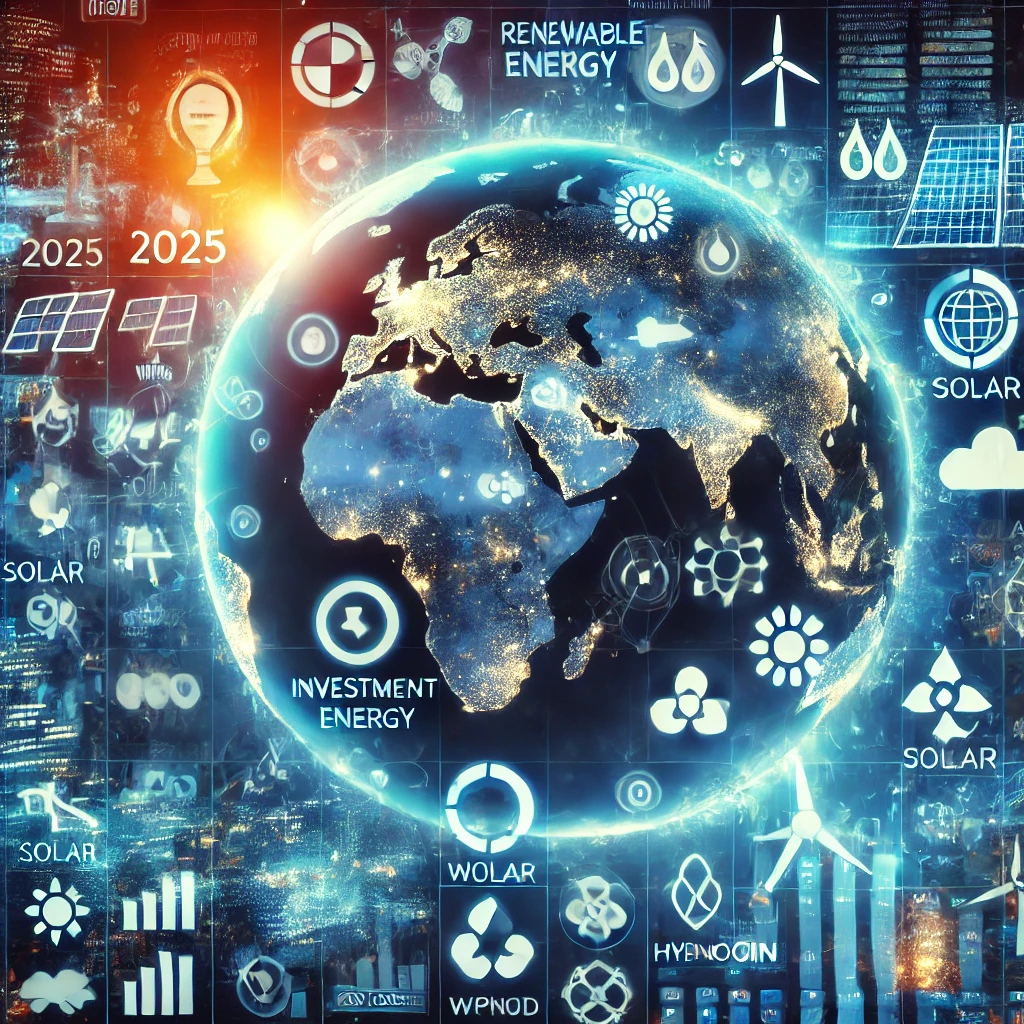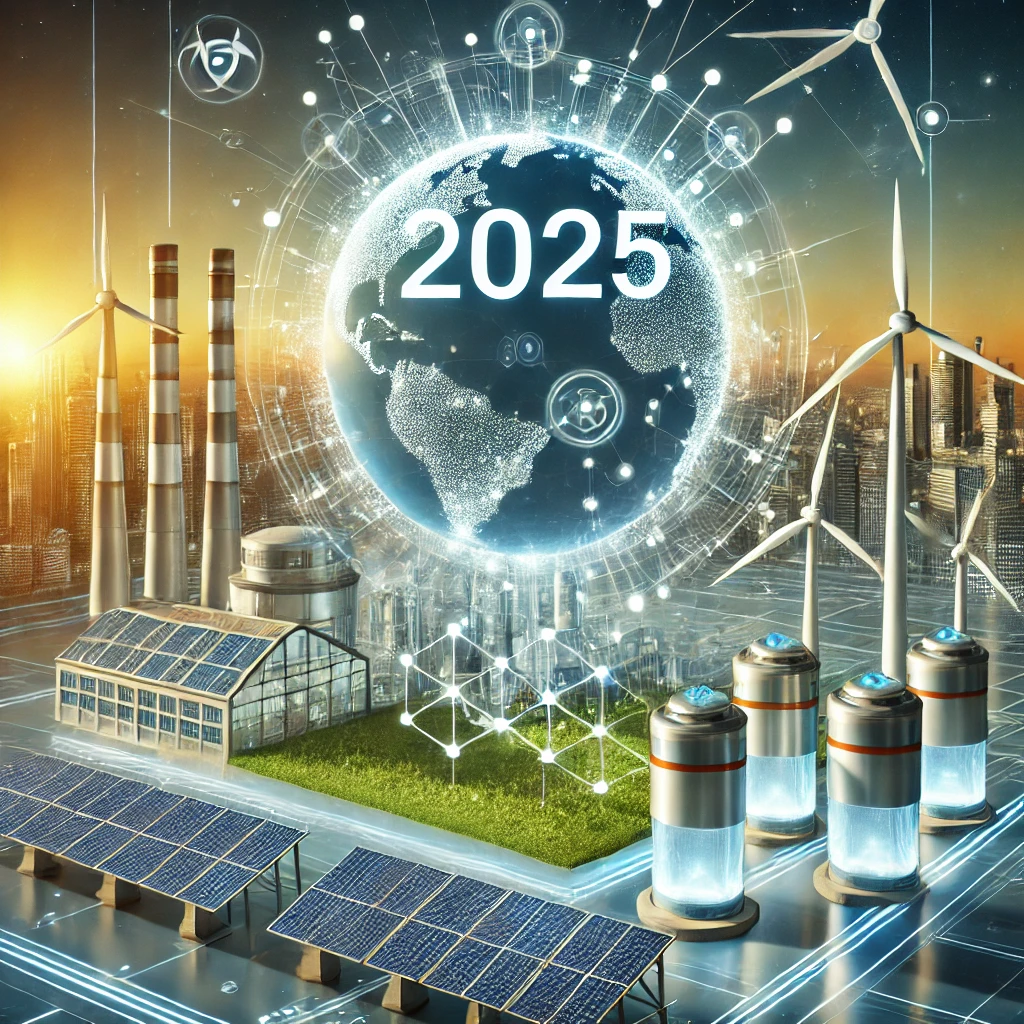Renewable energy future 2025 is transforming the global energy landscape, offering sustainable solutions to climate change and energy security. As we move into 2025 and beyond, many questions arise about the future of green energy.
Governments worldwide are accelerating their clean energy transitions, while businesses and consumers are increasingly investing in solar, wind, and other sustainable power sources. However, challenges such as energy storage, infrastructure development, and policy frameworks still need to be addressed.
In this article, we answer five key questions to help you understand the direction of renewable energy development.

1. What Are the Most Promising Renewable Energy Sources in 2025?
As technology advances, several renewable energy sources are becoming more efficient and cost-effective:
- Solar Power: Improved solar panel efficiency and large-scale solar farms are driving growth. The cost of solar energy has dropped by over 80% in the past decade, making it one of the most viable renewable sources.
- Wind Energy: Offshore wind farms are expanding rapidly, especially in Europe and North America. New floating wind turbines are enabling deployment in deeper waters.
- Hydrogen Energy: Green hydrogen is emerging as a game-changer for industries and transportation. Companies like Tesla and Toyota are exploring hydrogen fuel cell technologies.
- Geothermal and Tidal Energy: These lesser-known sources are gaining attention for their reliability and potential to provide 24/7 clean energy.
With continued investment and technological advancements, these energy sources will play a crucial role in the transition away from fossil fuels.
2. How Will Renewable Energy Impact Global Economies?

The renewable energy sector is expected to have a profound impact on global economies:
- Job Creation: The International Renewable Energy Agency (IRENA) estimates that by 2030, renewable energy will create over 30 million new jobs worldwide, particularly in solar and wind energy.
- Energy Independence: Countries can reduce reliance on imported fossil fuels, strengthening national energy security.
- Economic Growth: The clean energy industry is attracting massive investment, with the World Economic Forum predicting that renewables could contribute over $10 trillion to the global economy by 2050.
The economic benefits of renewable energy extend beyond just energy production—industries such as electric vehicles (EVs), battery storage, and smart grids will also see substantial growth.
3. What Are the Challenges of Renewable Energy Expansion?
Despite its benefits, renewable energy still faces several challenges:
- Energy Storage Limitations: Solar and wind energy are intermittent, meaning storage solutions like lithium-ion batteries and hydrogen fuel cells need further development.
- Grid Modernization: Many national energy grids were built for fossil fuels and require upgrades to handle renewable power fluctuations.
- Initial Investment Costs: While long-term savings exist, upfront costs for solar farms, wind turbines, and energy infrastructure remain high.
- Land and Resource Use: Large-scale solar and wind farms require significant land, which can lead to conflicts with agricultural or conservation efforts.
Overcoming these challenges requires government incentives, private sector investment, and technological innovation.
4. How Will Renewable Energy Affect Homeowners and Businesses?
For Homeowners
- More households will install solar panels and battery storage systems to reduce energy bills and reliance on the grid.
- Smart home technologies will allow for real-time energy management and optimization.
- Governments in many countries are offering tax credits and subsidies to encourage home solar adoption.
For Businesses
- Corporations investing in renewable energy contracts (PPAs) can significantly cut energy costs.
- Manufacturing companies adopting green energy solutions can improve sustainability and reduce carbon footprints.
- McKinsey & Company reports that renewable energy adoption can reduce business energy expenses by 30% or more.
As costs decrease and technology improves, renewable energy will become increasingly accessible to both individuals and businesses.
5. What Role Will Government Policies Play in the Future of Renewable Energy?

Governments worldwide are implementing policies to accelerate the transition to renewable energy:
- United States: The Biden administration aims for 100% clean energy by 2050, with major investments in solar, wind, and battery storage.
- European Union: The EU has set a 55% carbon emissions reduction target by 2030 and plans to increase its reliance on wind and solar power.
- China: As the world’s largest renewable energy investor, China is leading in solar and wind capacity expansion. The country plans to become carbon neutral by 2060.
- India: India has set ambitious targets to install 500 GW of renewable energy capacity by 2030.
These policies will drive innovation, lower costs, and accelerate adoption, ensuring a cleaner energy future.
🔹 Conclusion: The Future of Renewable Energy in 2025 and Beyond
Renewable energy future 2025 is no longer just an alternative—it is rapidly becoming the dominant force in the global energy market. With advancements in solar, wind, hydrogen, and storage technologies, the transition to clean energy is inevitable.
However, to fully unlock the potential of the renewable energy future in 2025, challenges such as grid modernization, investment costs, and energy storage must be addressed. Governments, businesses, and individuals all have a role to play in shaping a sustainable future.
As we move beyond 2025, one thing is clear: renewable energy will be the backbone of the next industrial revolution, driving economic growth and environmental sustainability worldwide.







